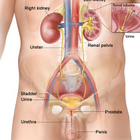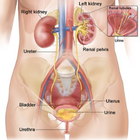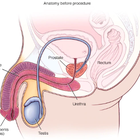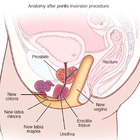Sex Reassignment Surgery (Male to Female) in Greece
Search and Compare the Best Clinics and Doctors at the Lowest Prices for Sex Reassignment Surgery (Male to Female) in Greece

Find the best clinics for Sex Reassignment Surgery (Male to Female) in Greece
No clinics available
Thailand offers the best prices Worldwide
Price: $ 2,473

- Home
- Greece
Compare Before & After Photos of _procedure_photos.phpSex Reassignment Surgery (Male to Female)


Front view


Front view


Front view


Front view


Front view


Front view


Front view


Half-side view


Front view


Half-side view


Front view


Full-side view
WHY US?
At Medijump, we're making medical easy. You can search, compare, discuss, and book your medical all in one place. We open the door to the best medical providers worldwide, saving you time and energy along the way, and it's all for FREE, no hidden fees, and no price markups guaranteed. So what are you waiting for?

Free

Best Price

Widest Selection

Risk-Free
What you need to know about Sex Reassignment Surgery (Male to Female) in Greece

Also known as Gender Reassignment or Sex Change Surgery, Sex Reassignment Surgery (SRS) involves the surgical procedures required to change a person’s sexual characteristics from one gender to the other. The procedure can be used to transition a person from Male to Female and from Female to Male. Male to Female procedure involves reshaping of male genitals to appear and function as female genitalia (including a vaginoplasty), hair removal therapy, hormone replacement, facial feminization surgery, and Breast Augmentation.
Hormone treatment is started one year prior to surgery and continues after, where estrogen helps to reshape the body’s contours and stimulates the growth of labia majora. At least one therapist will be required to assess a patient’s psychological wellbeing before the go-ahead can be given.
The decision to have a breast augmentation should be an informed one that takes into account the potential risks and side effects. You should also have realistic expectations about the results of breast implant surgery to avoid disappointment. Find out about the procedure, the recovery period and any possible complications - ask your doctor or surgeon if you are unsure about anything.
What is the cost of Sex Reassignment Surgery (Male to Female) in Greece?
One of the most common inquiries about the Sex Reassignment Surgery (Male to Female) pertains to its expense. The financial burden associated with the procedure may significantly impact one's decision to pursue it. Nonetheless, it's not easy to pinpoint the exact cost, given that numerous factors can influence it. In Greece, the total cost of the procedure may fluctuate considerably based on factors like surgeon qualification, the intricacy of the operation, and the span of hospitalization, to name a few.
It's vital to acknowledge that the Sex Reassignment Surgery (Male to Female) is not a one-off event, but entails a succession of treatments and surgeries. Typically, it includes mental health sessions, hormone treatments, and several surgical procedures, all of which add to the general cost. Expenses post-surgery, such as medication, check-up appointments, possible extra surgeries, and supplementary therapies, also require consideration. Furthermore, expenses for travel and lodging in Greece should be taken into account. For a precise cost approximation, reach out directly to the clinic.
What does a Sex Reassignment Surgery (Male to Female) Procedure Involve?
Clinically speaking, sex change operation is known as “Genitoplasty Procedure”. This type of procedure can be performed to transition an individual from female to male and from male to female.
It is very important to understand that before you undergo surgery, you will need to first transition. Gender transition is a lengthy process that requires a lot of patience and resilience. In addition, it will be of great help if you have a strong support system to back you up in times of difficulty. It’s also essential that you have a therapist to not just help you with your emotional wellbeing before and after the transition, you will also need a letter of recommendation from your therapist before your surgery.
Transitioning from male to female will involve penectomy (removal of the penis), orchiectomy (removal of testes), vaginoplasty (creation of a vagina), and feminizing genitoplasty (creation of female genitalia). During the surgery, you will be induced with a general anesthetic.
You must start hormone treatment a year prior to your surgery to help reshape your body contours and stimulate the growth of your labia majora. Hormone treatment will be continued even after your sex-change operation.
There are popular MTF sex reassignment surgery techniques which you can choose from, two of which are: sex reassignment surgery with skin graft technique - the most popular SRS procedure, vaginal depth is up to 13-15cm (5-6 in). Another is sex reassignment surgery with colon graft - suitable for people with less scrotal skin and those who prefer a lubricated vagina and is considered as the most expensive procedure.
There are other procedures that you can undergo to fully transition from male to female. These may include; breast implants, facial feminization surgery (FFS), and another procedure would be to minimize the appearance of your Adam’s apple, etc. All procedures to help one fully transition will vary on the individual’s need and of course, their budget.
Prerequisites to Surgery
- Patients must be at least 20 years old or have consent from parents / legal guardians for those between 18 and 20.
- At least 12 months of successful and continuous real-life experience living as a woman.
- At least 12 months of continuous hormonal therapy.
- Must consult with a psychiatrist in the home country and in the country where the procedure will be performed (this can be arranged in your chosen hospital in Greece).
- Physically fit for surgery.
Popular MTF Sex Reassignment Surgery (SRS) Techniques
1. SRS with Penile Skin Inversion
- Suitable for patients who do not want a vagina for sexual intercourse, particularly popular with elderly trans people. Depth is around 2-4 cm (1-2 in) and penile hair removal is required prior to surgery.
- Surgery: 2.5 hours
- Hospitalization: 4 nights
- Recovery time in Greece: 3-4 weeks
2. SRS with Scrotal Skin Graft
- Scrotal skin is used to create a vaginal depth of up to 13-15 cm (5-6 in), depending on skin quality and quantity (additional depth is possible by using groin skin). This is the most popular SRS procedure.
- Surgery: 4 hours
- Hospitalization: 6 nights
- Recovery time in Greece: 3-4 weeks
3. SRS with Sigmoid Colon by Laparoscopic Technique
- The Sigmoid colon is used to create the vagina, allowing for greater depth than what is possible with SRS with a scrotal skin graft. More suited to those with less scrotal skin or those who prefer to have a lubricated vagina, like that of a biological woman. By far the most expensive technique.
- Surgery: 6 hours
- Hospitalization: 7 nights
- Recovery time in Greece: 3-4 weeks
How Long Should I Stay in Greece for a Sex Reassignment Surgery (Male to Female) Procedure?
A lot of patients prefer having surgery overseas since it is far less expensive and most countries, like Greece, have a very high success rate in terms of plastic surgery and gender reassignment surgery.
Recovery after surgery will be a long and painful process. It will also require several follow up procedures as well as constant monitoring so you will have to stay a little bit longer at the hospital until you are ready to be discharged. Generally, allow for a minimum of 3 weeks stay in Greece after your surgery, this will allow for the removal of stitches and a few weeks of follow up visits with the surgeon.
What's the Recovery Time for Sex Reassignment Surgery (Male to Female) Procedures in Greece?
Smoking before and after the surgery is highly discouraged and avoid smoking for at least two weeks to reduce risks of non-healing.
Most people are able to return to work in about 4-6 weeks after a sex change operation. Furthermore, you can resume strenuous work and exercise after 2 months. It is vital that you strictly follow all medication instructions during your recovery period.
Keep in mind, recuperation incorporates not only physical healing but also emotional rejuvenation. The Sex Reassignment Surgery (Male to Female) implies a noteworthy modification in your way of living and acclimating to an altered body image and social identification requires patience. Mental health guidance proves to be an important element in the healing journey, offering emotional assistance and managing any mental obstacles that come up.
What sort of Aftercare is Required for Sex Reassignment Surgery (Male to Female) Procedures in Greece?
Social support is very important before and after the surgery, especially the support that comes from your family and loved ones. You have to be socially and emotionally stable before you undergo the operation. This is why it is required that you have proper counseling to help you with your emotional wellbeing. You have to prepare yourself mentally, before, during and after transition because it can be quite overwhelming and stressful.
It is also important that you maintain a regular check-up with your local doctor to monitor the progress of your healing and avoid complications.
What's the Success Rate of Sex Reassignment Surgery (Male to Female) Procedures in Greece?
The success rate for a sex change is very high nowadays, given technological advancements and the greater experience of surgeons. Gender reassignment surgery from male to female has a higher success rate than female to male; this is why more male transgender people opt for a sex change.
However, given the nature and complexities of this type of surgery, you also have to be aware of its complications, for example, there is always a possible risk of infection, severe pain, given the intrusive nature of the surgeries and the potential for blood clotting and scarring.
Possible side effects may also include a decreased sexual sensation and ability to orgasm, fistula (opening between rectum and vagina), narrowing of vagina and hair growth in the vagina from the grafted tissue and the partial death of tissue used to create the new vagina.
Are there Alternatives to Sex Reassignment Surgery (Male to Female) Procedures in Greece?
There is no alternative to a sex-change operation for those who want to fully transition their body to match their gender identity. Undergoing gender reassignment surgery will require a lot of time, energy, patience, and of course money. A vast majority of people who experience gender dysphoria never really surgically alter their appearance. Instead, they use creams and hormonal pills to alter their bodily appearance. Estrogens (female hormones) will help develop the breast, widen the hips, help lose facial hair and slightly increase voice pitch.
What Should You Expect Before and After the Procedure
Prior to even undergoing the Sex Reassignment Surgery (Male to Female), those considering this option should be aware that their health care provider will necessitate a thorough evaluation phase. This is implemented to ascertain that the individual is thoroughly prepared, both physically and mentally, for the major changes that the procedure implies. The evaluation generally includes multifaceted assessments of physical and mental health, as well as evaluating certain social circumstances. The objective of these assessments is to gauge the individual's preparedness and appropriateness for the procedure.
In this initial stage, the health care provider implements a cross-disciplinary strategy, typically engaging a collaborative team made up of endocrinologists, psychologists, and surgeons. The aim is the effective provision of required hormone therapy and mental health counseling, alongside addressing any possible health-related issues. This pre-surgery stage also serves to educate and obtain consent, meticulously discussing details such as the implications, possible outcomes, risks, and difficulties related to the Sex Reassignment Surgery (Male to Female). Once approved for surgery, patients should be ready to adhere strictly to all pre-surgery directions to lessen any potential risks and complications during the process.
Post Sex Reassignment Surgery (Male to Female), patients should gear up for a substantial recovery period. This will require dedicated wound maintenance, compliance with prescribed medicines, and following specific physical limitations to assist healing. Depending on the specific nature of the surgery, some patients might also have to adhere to a vaginal dilation plan. This plan necessitates consistent use of dilators to avoid the newly created vagina from becoming narrow during the healing period.
What are Potential Risks of Sex Reassignment Surgery (Male to Female)?
A comprehensive understanding and consideration of prospective hazards and difficulties linked to Sex Reassignment Surgery (Male to Female) is vital before proceeding. As a significant surgical operation, it inherently possesses hazards such as intolerance to anesthesia, surgical infections, hematoma or blood congregating outside the blood vessels, excessive bleeding, or suturing problems. Even with the advancements in modern surgical procedures that help minimize these risks, they cannot be entirely eradicated and, therefore, must be anticipated.
The Sex Reassignment Surgery (Male to Female) encompasses elaborate and multifaceted surgeries like vaginoplasty, which have unique inherent risks. Some of these potential hazards include the possibility of diminished sexual sensitivity, complications in urinary functions, or challenges with the dimensions of the newly formed vagina. Other complications can include issues such as vaginal stenosis, a scenario where the vagina gradually shrinks and lessens over time, or rectovaginal fistula, a rare situation where a connection forms between the rectum and vagina unintentionally. Sometimes, more corrective surgeries might be necessitated due to post-surgical complications.
Popular Procedures to Combine with SRS
- Usually performed in one operation: Orchiectomy to remove the testicles and prevent further production of testosterone, Penectomy to remove the penis and Vaginoplasty to form the female genitalia
- Breast Augmentation to create the breasts, which is usually performed at a later date.
- Facial Feminization Surgery (FFS) and Tracheal Shave to help feminize the facial features and is not necessary for many patients.
- Hair Implants, Hair Removal Therapy, and Continued Hormone Replacement Therapy.
Whilst the information presented here has been accurately sourced and verified by a medical professional for its accuracy, it is still advised to consult with your doctor before pursuing a medical treatment at one of the listed medical providers
No Time?
Tell us what you're looking for and we'll reachout to the top clinics all at once
Enquire Now

Popular Procedures in Greece
Prices Start From $69

Prices Start From $208

Prices Start From $1,945

Prices Start From $1,795

Prices Start From $889

Recommended Medical Centers in Greece for procedures similar to Sex Reassignment Surgery (Male to Female)

- Interpreter services
- Translation service
- Religious facilities
- Medical records transfer
- Medical travel insurance
- Health insurance coordination
- TV in the room
- Safe in the room
- Phone in the room
- Private rooms for patients available

- Interpreter services
- Translation service
- Religious facilities
- Medical records transfer
- Medical travel insurance
- Health insurance coordination
- TV in the room
- Safe in the room
- Phone in the room
- Private rooms for patients available

- Interpreter services
- Translation service
- Religious facilities
- Medical records transfer
- Medical travel insurance
- Health insurance coordination
- TV in the room
- Safe in the room
- Phone in the room
- Private rooms for patients available

- Interpreter services
- Translation service
- Religious facilities
- Medical records transfer
- Medical travel insurance
- Health insurance coordination
- TV in the room
- Safe in the room
- Phone in the room
- Private rooms for patients available

- Interpreter services
- Translation service
- Religious facilities
- Medical records transfer
- Medical travel insurance
- Health insurance coordination
- TV in the room
- Safe in the room
- Phone in the room
- Private rooms for patients available

- Interpreter services
- Translation service
- Religious facilities
- Medical records transfer
- Medical travel insurance
- Health insurance coordination
- TV in the room
- Safe in the room
- Phone in the room
- Private rooms for patients available

- Interpreter services
- Translation service
- Religious facilities
- Medical records transfer
- Medical travel insurance
- Health insurance coordination
- TV in the room
- Safe in the room
- Phone in the room
- Private rooms for patients available

- Interpreter services
- Translation service
- Religious facilities
- Medical records transfer
- Medical travel insurance
- Health insurance coordination
- TV in the room
- Safe in the room
- Phone in the room
- Private rooms for patients available

- Interpreter services
- Translation service
- Religious facilities
- Medical records transfer
- Medical travel insurance
- Health insurance coordination
- TV in the room
- Safe in the room
- Phone in the room
- Private rooms for patients available

- Interpreter services
- Translation service
- Religious facilities
- Medical records transfer
- Medical travel insurance
- Health insurance coordination
- TV in the room
- Safe in the room
- Phone in the room
- Private rooms for patients available
Sex Reassignment Surgery (Male to Female) in and around Greece
About Greece
Located at the very bottom of the Balkan Peninsula, Greece is a mesmerizing blend of sun-drenched islands and historical marvels. Boasting approximately 2,000 islands, an impressive 170 among them are inhabited and teeming with life. Greece's geographical charm has been nowhere short of a magnet to travelling enthusiasts, pulling in a spectacular count of over 24 million wanderlust-struck visitors each passing year.
Greece turns out to be a preferred hotspot for a particular category of globe-trotters. Travelers come from the farthest stretches of the world seeking its array of top-tier beaches to soak up the sun, the warm ocean for an invigorating dip, the array of ancient relics for their history fix, and to immerse into an engaging culture. The universal allure of Greece, seemingly, never ceases to captivate the hearts of explorers worldwide.
The upward shift in Greece's status as a medical tourism hub has been quite noticeable in recent years. Medical tourists are being increasingly drawn to the country, a relative newcomer in the industry, due to a myriad of reasons. One of the core attractions is its health care system, which holds a high rank on the global scale. However, in spite of boasting of world-class standards, the medical services in Greece are pleasantly affordable. In fact, it flaunts some of the most pocket-friendly medical care prices across Europe and even globally.
The medical services that Greece provides run a comprehensive gamut. Cosmetic surgery and fertility treatments are particularly sought-after medical services, favoured by numerous medical tourists. Orthopedics also sees a consistent flow of patients, along with cardiac care procedures. The well-established oral and dental sector in Greece is another popular draw for people wanting to combine their medical treatments with a relaxing vacation. The availability of such diverse, high quality, yet affordable healthcare options certainly puts Greece on the map as a promising medical tourism destination.
Popular Parts of Greece
The captivating city of Athens, the crown jewel of Greece, presents a dazzling blend of antiquated splendor, enchanting landscapes, and a vibrant modern core. The capital prides itself in harboring an unparalleled assortment of Greek ruins and antiques. Prime among them is the Acropolis, an iconic ancient citadel perched on a rocky outcrop. The Greek Agora, a central public space in ancient Greek city-states, adds an extra charm to Athens’ archaeological grandeur.
On the other hand, the striking island of Santorini stands as another touristic magnet in Greece. Admired far and wide, it carries the reputation of being the most breathtaking island in the country. The enormous allure of Santorini with its distinctive architecture, caldera views, and famous sunsets, keeps it perennially embedded in the bucket lists of travelers worldwide. From the captivating capital of Athens to the charming Santorini, Greece exhibits alluring facets that are truly hard to resist.
It is best known for its unique landscape and cliff-top towns. While Santorini is the most spectacular, Mykonos is the most glamorous. It is noted for its classy seafood restaurants and boutique hotels. Some of the most famous attractions in Mykonos, besides its beaches, are Paraportiani and Little Venice.
Weather and Climate in Greece
Set on the Mediterranean, Greece experiences a climate that is typically balmy and sun-soaked throughout the year with a cycle of four distinct seasons. Summers, spanning June to August, bring about warm and agreeable temperatures. This peak season draws in a large number of tourists, making it an ideal time to take a dive into the azure seas.
As September ushers in the fall season, the weather across Greece turns cooler but largely stays clear. On the flip side, winters starting from December to February reveal a different picture. Coastal cities remain warm but the country's northern regions experience significantly lower temperatures, occasionally even witnessing snowfall.
As March marks the arrival of spring, the weather begins to warm up again, though evenings can retain a cool nip in the air. Each season has its unique charm and adds to the overall allure of Greece.
Getting around in Greece
Athens International Airport holds the distinction of being the largest and busiest hub for international air travel in Greece. This is typically the point of arrival and departure for a majority of international tourists exploring Greece. The extensive network of this airport caters to both domestic and international flights, connecting many global cities like Dubai, London, Moscow, and New York to the heart of Greece.
Among affordable means of transport, the ferry services stand out, particularly for travelling among the islands. They run on a frequent basis, with services especially ramped up during the sun-soaked summer months. For land travel, buses come across as largely comfortable and hassle-free, although the network is somewhat limited.
For intra-city travel within major Greek metropolises, the extensive network of buses and trolleybuses prove to be reliable options. Particularly in Athens, the capital city, the metro and tram systems offer additional efficient and cost-effective ways to explore the local attractions. Additionally, taxis, which are conveniently available quite everywhere, turn out to be extremely pocket-friendly. Whether hopping between islands or navigating city streets, Greece offers a range of transportation options to suit the needs and budgets of different travelers.
Tourist Visas in Greece
Greece is part of the Schengen Area, which means that citizens of most countries can travel to Greece without a visa for up to 90 days within a 180-day period.
Citizens of the following countries do not need a visa to visit Greece:
- All European Union citizens
- Citizens of Andorra, Iceland, Liechtenstein, Monaco, Norway, San Marino, Switzerland, and Vatican City
- Citizens of Australia, Canada, Japan, New Zealand, the United Kingdom, and the United States
Citizens of all other countries need to obtain a visa to visit Greece.
You can apply for a Greek tourist visa at the Greek embassy or consulate in your home country. The visa application process can vary depending on the country where you are applying, but there are some general requirements that all applicants must meet, such as having a valid passport, proof of onward travel, and proof of financial means.
Additional Information
- Local Currency: The official currency in Greece is the euro (€). €0.94 is equivalent to approximately US$1.
- Money & Payments: Reliable ATMs can be found easily in all cities and towns, particularly on the mainland. Major credit cards, such as MasterCard and Visa, are widely accepted. Tipping is expected in most places, usually around 5% to 10%. Make sure to tip in cash.
- Local Language: The most widely spoken language in Greece is Greek, which is the official language of the country. Most people in tourist areas and the younger generations can speak and understand some English, German, French, or Italian.
- Local Culture and Religion: Greek Orthodox Church is the largest religion in Greece, representing 90% of the total population. There are also small communities of Muslim, Roman Catholic, and Jewish.
- Public holidays: The most celebrated holidays in Greece include Easter, Apokreas (Carnival Season), and Saint’s day of the Virgin Mary, Ohi Day, Independence Day, and Christmas Day.
Popular Searches
- Plastic Surgery in Thailand
- Dental Implants in Thailand
- Hair Transplant in Thailand
- Breast Augmentation Thailand
- Gastric Sleeve in Thailand
- Gender Reassignment Surgery in Thailand
- Laser Hair Removal in Bangkok
- Botox in Bangkok
- Dermatology in Bangkok
- Breast Augmentation in Bangkok
- Coolsculpting in Bangkok
- Veneers in Turkey
- Hair Transplant in Turkey
- Rhinoplasty in Turkey
- Stem Cell Therapy in Mexico
- Rhinoplasty in Mexico
- Liposuction in Mexico
- Coolsculpting in Tijuana
- Rhinoplasty in Korea
- Scar Removal in Korea
- Gastric Sleeve in Turkey
- Bone Marrow Transplant in India
- Invisalign in Malaysia
- Plastic Surgery in the Dominican Republic
- Tummy Tuck in the Dominican Republic
- Plastic and Cosmetic Surgery in Poland
- Rhinoplasty in Poland
- Hair Implant in Poland
- Dental Implants in Poland
- IVF in Turkey